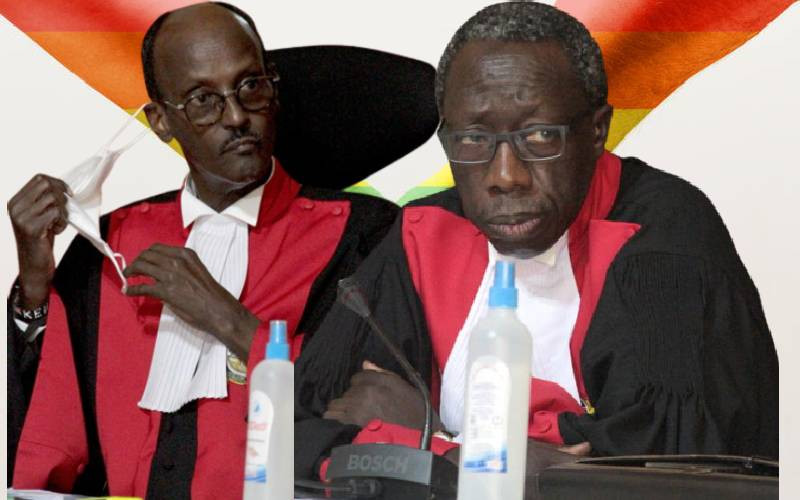×
The Standard e-Paper
Fearless, Trusted News

It was not all rosy for same-sex groups at the Supreme Court as two judges strongly differed with their colleagues over registration of same-sex associations in Kenya.
Although the majority of three judges had their way, the minority of Justices Mohammed Ibrahim and William Ouko had their say with dissenting opinions that Lesbian, Gay, Bisexual, Transgender, Queer and Intersex (LGBTQI) activities are illegal and have no place in our society.